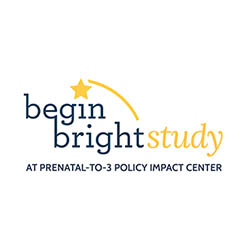HIGHER WAGES FOR EARLY CHILDHOOD EDUCATORS NEEDED TO SUPPORT FAMILIES AND BUSINESSES
Press Contact: Molly Kramer, 615-343-8948, molly.m.kramer@vanderbilt.edu
Early childhood educators play an essential role in child development and the economy, but are consistently among the lowest paid. Nationally, early childhood educators earn less than 98% of other occupations. In a new research brief, the Prenatal-to-3 Policy Impact Center looks at this issue through the lens of the Lone Star State, where the typical early childhood educator earns $4.41 per hour below a living wage.
The brief also raises issues of equity and advancement. Hispanic educators, educators at subsidy-accepting programs, and educators in rural areas earn the least. And experience does not bring meaningful wage increases—an early childhood educator with 25 years on the job would, on average, make only $2 more per hour than a new high school graduate joining the field.
“Child care done well supports babies’ rapidly developing brains and bodies, and it also allows parents to rejoin the workforce. An insufficient child care system poses major costs. Attracting excellent educators through adequate compensation is critical to providing the child care needed by Texas’ families and businesses,” said Dr. Cynthia Osborne, Executive Director of the Prenatal-to-3 Policy Impact Center and Professor of Early Childhood Education and Policy at Vanderbilt’s Peabody College.
The new research brief is the first of a series to be published in January and February of 2023. Future briefs will touch on other workforce issues, such as access to benefits. The briefs were developed as part of the Prenatal-to-3 Policy Impact Center’s work with the Texas Workforce Commission to develop Workgroup Recommendations to Inform the 2022 Child Care Workforce Strategic Plan, in accordance with Texas House Bill 619 of the 87th Legislature of Texas.
To read the research brief, visit this page.



